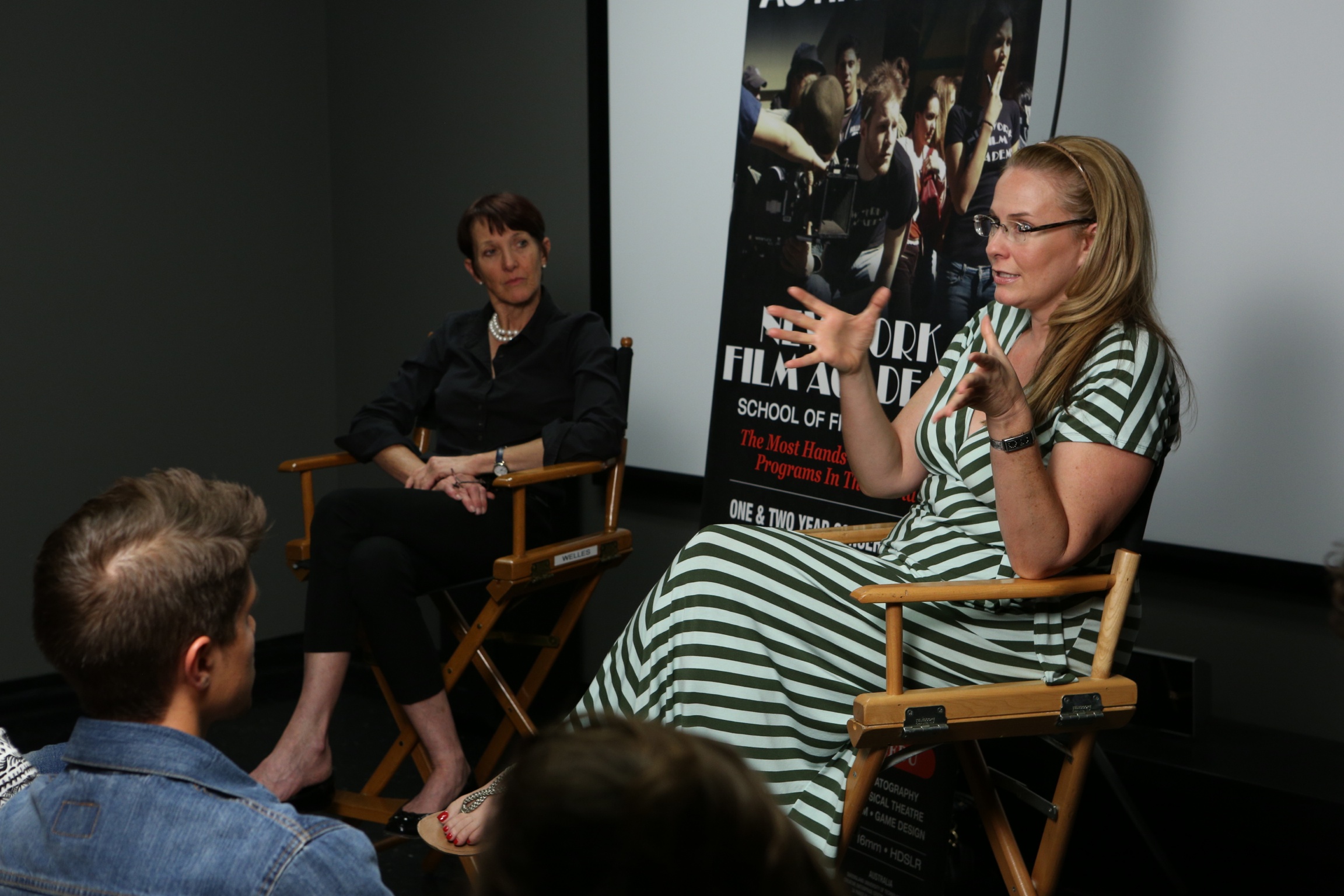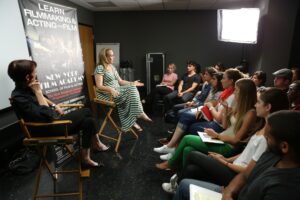
Jennifer Boyce, the head of the Commercial Talent Department at The Savage Agency for 22 years, spoke to more than 60 acting students in the Welles Screening room at the New York Film Academy in Los Angeles. The Savage Agency has been one of the top agencies for young talent – from ages 3 to 40 – for over 35 years. They represent actors for theatrical, voice over, and commercials.
Here are some of the facts that she feels are important for new talent to know:
- Having an awesome photo is important! If you are not known to the Casting Director, they have no imaginations. Have several pictures with different looks. Once the Casting office gets to know you, they will have an idea of your type.
- Be a “CAN DO” client. Jennifer said, “I work for free until you work, so if I worked for a year for you to finally get a job, that’s one day’s work. You will earn $627.00 at scale for a commercial. I will make $62.70. So I don’t make money unless you make it. So I want clients to work. If I make a suggestion you should pay attention to that. You have to show me you are passionate about this.”
- An audition is not a pedicure appointment. You have to really want it. If you don’t there are lots of others who do. Every audition is an opportunity! When you are starting out, you should be willing to do everything.
- Don’t just rely on your agent. Don’t just sit by the phone and wait, complaining that your agent isn’t doing anything for you. “I make 10%, so I always say I will do 10% of the work, but you have to do 90%. I get you in the door, but after that the rest is up to you.” It’s important to create your own work – be in plays, improv groups, get yourself out there.
- If something is not working, don’t blame your agent, look to yourself.
- At the end of the day your job is to audition. Some actors hate the casting process. Get used to it. They might pick somebody because they look like their sister or girlfriend, but that is what happens. You can’t control what they are looking for, but you can control what you do in the room. If you’re getting callbacks, you are doing your job. If you don’t get the job, it’s not on you. You can’t get involved in the politics. That’s the only way you can enjoy being in the business.
 The audience had many questions for her, including the following:
The audience had many questions for her, including the following:
Q: How do you choose new clients?
A: I usually choose through referral. If it’s not a referral, I go off picture and resume submission. I look for a GREAT picture, lots of training, improv groups, Second City and Groundlings. A lot of commercials are improv and funny, so those skills are especially important to me.
Q: How many head-shots should I have?
A: Have one good headshot to get you to see the agent. But don’t spend a lot of money on it, because most likely your agent will want you to get new ones. Every agents has different taste. A theatrical headshot is different – you need one great one. For commercials, you should have several looks that show different types that you can play.
Q: What do you look for in a headshot?
A: For commercials, I look for a headshot to be well lit. I want it to “pop” and see what role you’re going to play.
Q: How easy is it to get Non-SAG actors into auditions?
A: It’s getting harder to get commercials for non-union actors. A production company has to write an “essay” about why they need to use you for a union production, and if they don’t have a good reason, they will be fined $750. Casting has become more competitive so the Casting Director is not as willing to bring in non-union actors anymore because of this. They are more likely to call in names and their heavy hitters that they know. So new actors have a harder time getting in. Not everyone gets in to every audition – no matter who they are.
Q: What about sending candy or gifts to an agent in order to get a meeting?
A: I never open anything from anyone I don’t know. Better to send a postcard. A postcard is a very nice way to introduce yourself, and I can see it without opening anything.
NYFA thanks Jennifer for taking the time out to provide invaluable advice for our acting students. Her final words of advice could not be more helpful, “Be grateful and thankful for every opportunity you get.”